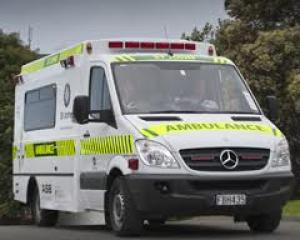Teachers are worried proposed NCEA and curriculum changes will narrow students' options and cause job cuts in the three food-related subjects.
The government's plans showed a total misunderstanding of Technology, Hospitality, and Food and Nutrition, they said.
It followed Hospitality New Zealand's warning that cutting Hospitality from the list of year 11 subjects would worsen looming workforce shortages.
Teachers told RNZ Hospitality covered food preparation and culinary skills, Technology involved problem-solving such as developing a snack bar for trampers, and Food and Nutrition was an academic subject focused on healthy eating and nutrition.
The proposed changes the government wanted to phase in from 2028 would make Food and Nutrition part of the Health curriculum, while Hospitality would be available only from year 12 and become part of the Social Sciences learning area.
Home Economics and Technology Teachers Association president Adrienne Reeves said the plans could cost teachers their jobs.
"It will have quite a monumental effect. I'm in a small high school myself and we offer two classes of level 1 Hospitality and we're a small school. That's two teachers that suddenly won't have a class in front of them to teach. Others offer all three subjects ... so for our members there's potential job losses looming," she said.
The plan to subsume Food and Nutrition into Health could reduce the subject to a series of modules within health education and that was a mistake given rising health problems such as obesity, Reeves said.
Teacher Michelle Jamieson said she combined Hospitality, Food and Nutrition and Technology in one course but the government's plan to make students study five full subjects with no mixing and matching would prevent that sort of mixed course structure.
"There's so many factors that go into working with food that we decided you can't become a food technologist without having those [hospitality] unit standards behind you. So I'm really concerned that the ministry haven't figured out that they can't stand alone, that you can't design food as a food technologist without understanding the nutrition and you can't design it without knowing how to make sure it's not hazardous or contaminated," she said.
Fewer students would study the food-related subjects if the changes proceeded, Jamieson said.
"If they go ahead the way they've planned for them, we're going to lose a lot of students who would have found a successful life career path in food in general because it will have ben so limited to just a niche area of study and it is not niche, it is so widespread and it is desperately needed in our industry," she said.
"We do not have enough chefs, we do not have enough baristas, we just do not have enough workforce to build our tourism industry back up from what it was before Covid and we're going to be really struggling to find that workforce of people that can do and do it well."
Hospitality teacher Amanda Multhaup said the government's plans were at odds with what teenagers' interest in hospitality and food technology.
"I think kids will be disappointed," she said.
"I taught for five years at Christchurch Boys' High and the subject grew. It was the fastest growing subject in the school in the five years that I was there so I think that kids want to do it. They understand that eating well and food is important."
Many schools had invested a lot in commercial kitchens and the changes could leave those expensive classrooms under-utilised, Multhaup said.
'No final decisions'
The Ministry of Education said the changes were still under consultation, but were designed to ensure subjects were coherent, conceptually rigourous, and clearly defined.
"While Food and Nutrition is not currently offered as a standalone NCEA Level 1 subject, nutrition and food-related learning is not being removed. Instead, this content will continue to be explicitly taught through several subjects within the Health and Physical Education and Technology learning areas, largely as it is now," it said.
"Health Education will include nutrition, wellbeing, and food choice. Food contexts for product development are included in Materials and Processing Technology as they are now, supporting innovation and design. Hospitality, as an industry-led subject, will continue to teach kitchen-based practical skills such as cooking, hygiene, and food preparation-preserving its hands-on nature and connection to real-world pathways."
"Final decisions about how industry-led subjects will be taught, assessed, and placed within learning areas will be made in partnership with Industry Skills Boards in 2026. The Ministry expects that practical, hands-on learning will remain a core feature of these subjects."
The proposed shift to a subject-based approach to the school qualification "would support consistent assessment of essential disciplinary learning in each subject, in every school", the ministry said.
"No final decisions have been made, and the Ministry is currently analysing feedback to inform next steps," it said.













